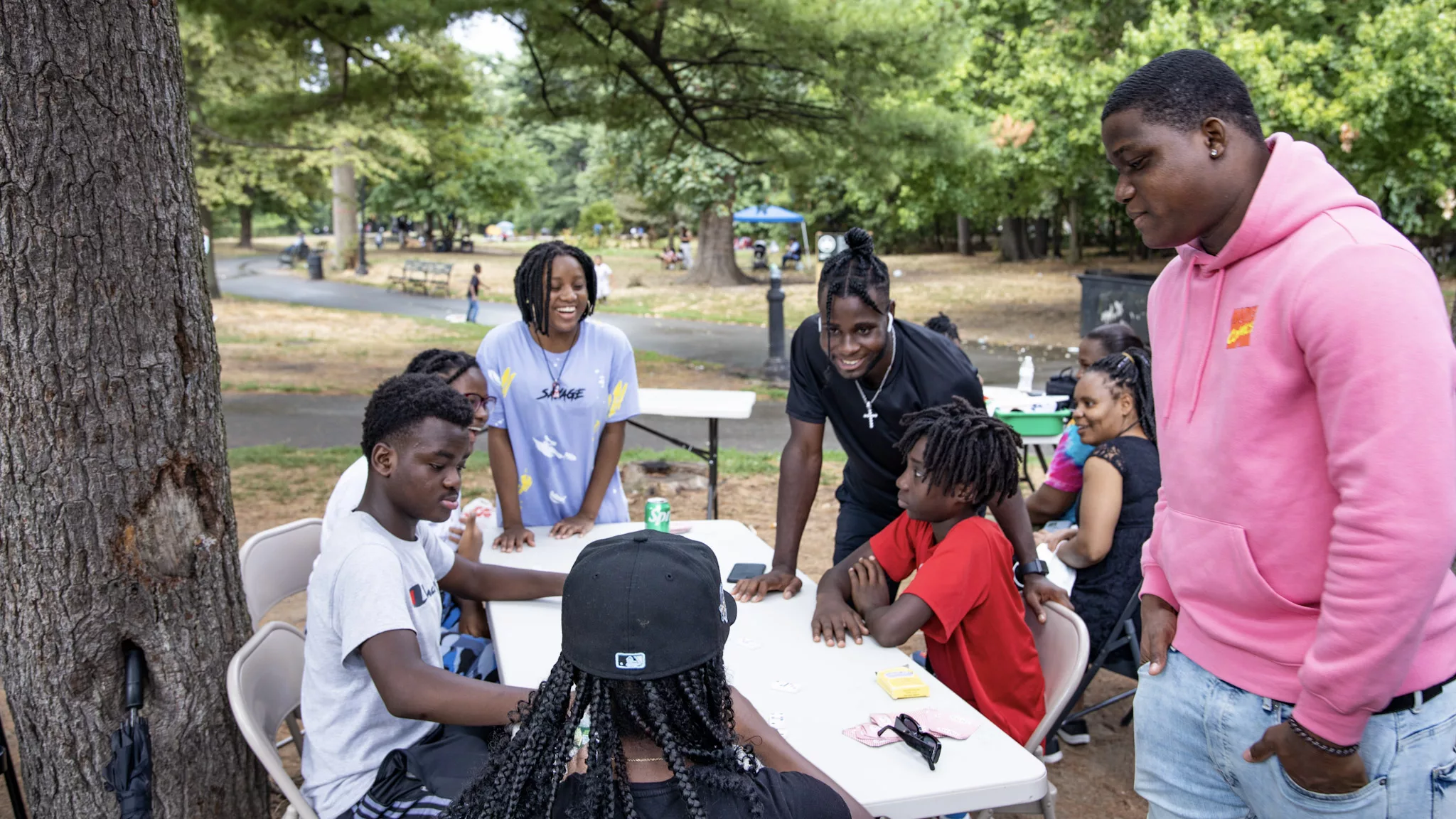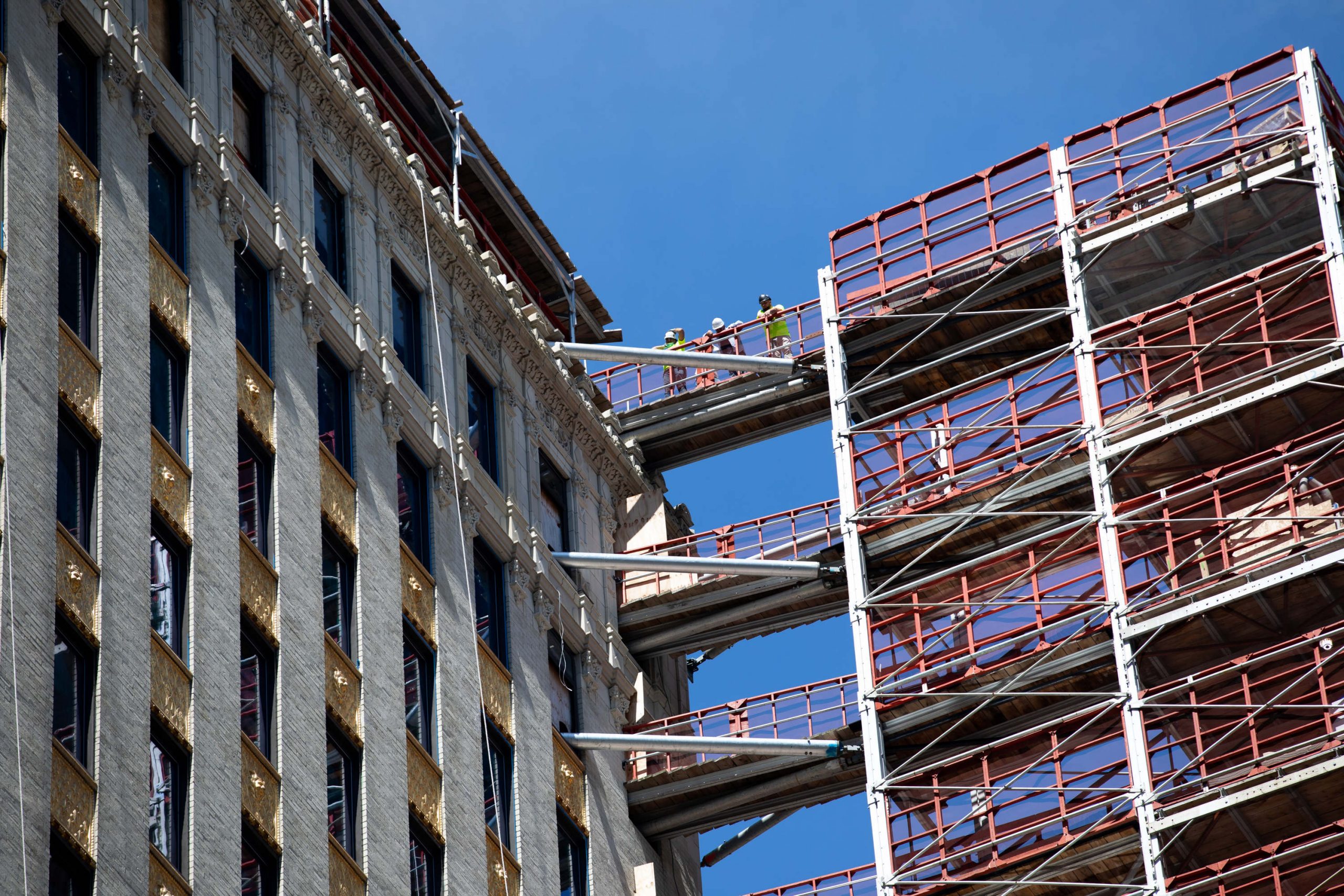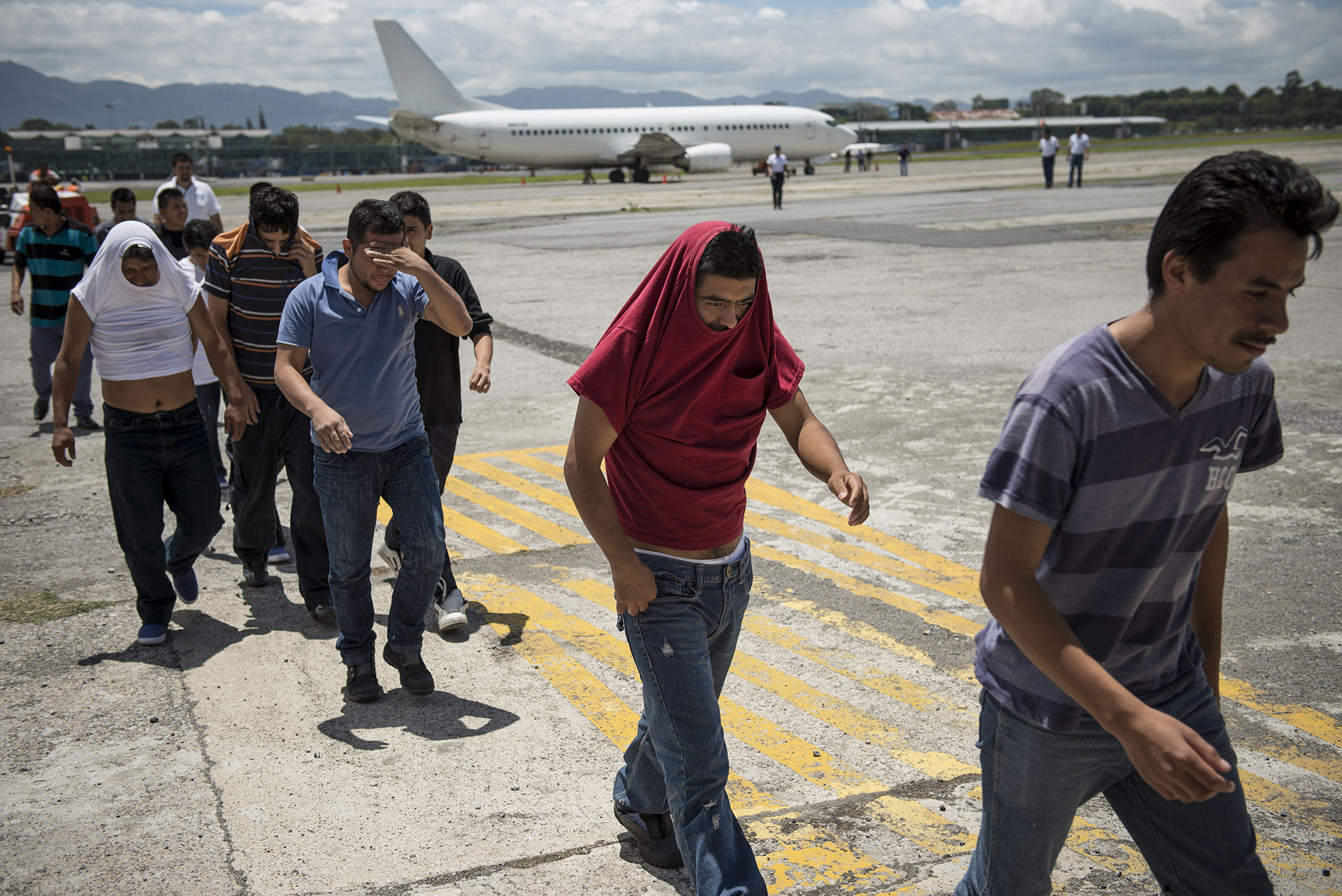Like many other young Haitian immigrants arriving in New York, going to school was challenging for Gael.
“In Haiti, I used to watch movies showing how foreign students get bullied,” the 17-year-old said. “So, when I knew that I was going to school, I was happy and stressed at the same time.”
Gael arrived in New York City under Humanitarian Parole two months ago. Before arriving, he lived in Port-au-Prince with his father and little brother. Once in New York, he was immediately enrolled in the Samuel J. Tilden High School in Brooklyn, the borough where he lives with his two brothers. To protect their identities, they have asked to withhold their last names.
His older brother Max told him about an organization called the Flanbwayan Literacy Project. For 18 years, Flanbwayan has been helping young Haitian students as an organization that speaks their language and knows their culture.
Gael could find a community in the Flanbwayan Literacy Project, the only Caribbean nonprofit organization in New York focusing on placing young immigrants into schools, regardless of their immigrant status. But over the past two years, Flanbwayan has seen the number of young students double as many Haitian families have come to settle in the city. Like Flanbwayan, many organizations assisting Haitian immigrants have also seen an increase in the clients they welcome.
More than 126,000 asylum seekers have come to New York City since the spring of 2022 and nearly 21,000 have enrolled in the public school system. According to official figures from Migration Policy, from October 2020 through May 2023, U.S. authorities encountered Haitians at the U.S. southwest border nearly 146,000 times.
Many Haitians left Haiti for Latin America after a devastating 7.0 earthquake killed about 300,000 people in January 2010. After the COVID-19 outbreak in Haiti, the economic crisis in the region forced many of them to seek better living conditions in the United States.
To curb the number of migrants arriving at the U.S.-Mexico border, in January 2023, President Biden designated Haitians and nationals from Cuba, Nicaragua, and Venezuela eligible for Humanitarian Parole. This parole program allows U.S. citizens or any eligible and legally admitted citizen in the U.S. to sponsor nationals from the four countries to work in the U.S. for two years. Data from the DHS published in June 2023 showed that 63,000 Haitians had been vetted and approved, and more than 50,000 have traveled to the U.S.
Flanbwayan currently assists about 400 students within the community. But since the COVID-19 pandemic, the number of students that Flanbwayan has served has doubled. In previous years, the organization served about 200 students per year, according to founder Darnell Benoit. With more Haitian immigrants arriving in the city, Benoit says Flanbwayan has struggled to cope with the growing demands.
Meeting increasing demands
When Benoit launched Flanbwayan in 2005, she said she needed newly arrived young immigrants to work with staff who had gone through the same challenges as her. The idea stemmed from her first experience in New York in the early 1980s when she was 13 years old. When she arrived in Queens, although was an important immigrant community, there weren’t any bilingual programs, especially for Haitian immigrants.
After high school, she started teaching ESL and witnessed how young adult Haitian students struggled at school like she did as a public school student. “I looked into the policies affecting immigrant students and the lack of opportunities, resources, and schools, and then I stopped teaching and focused on my community,” she said.
With a staff of nine employees, 12 volunteers, and four facilitators, the Flanbwayan Literacy Project runs an annual budget of about $800,000. Most of the money comes from institutions like the New York and Pinkerton Foundations.
In 2022, the city, through the Mayor’s Office of Immigrant Affairs, provided $1.5 million to eight organizations assisting Haitian immigrants. This year, the same organizations received an additional $1.6 million. Flanbwayan received $200,000 in 2022, plus $100,000 in 2023, to support case management for the newly arrived Haitian immigrants.
Because of staff shortages, Benoit says Flanbwayan can only serve three high schools in Brooklyn.
“There’s this big group of Haitian students there that need us,” she says. “We don’t want to leave anybody out. But we are leaving people out.”
However, she acknowledges they could add staff responsible for fundraising and development and thus bring in more money. Private donors, mostly Haitian individuals, contribute only about 2.5% of the organization’s annual budget. These donors, called “zanmi” (“friends” in English), have been contributing regularly via the website or on specific calls from the organization’s members.
“It’s not a lot,” says Benoit. “We wished we could have more Haitian donors.” Which is possible, she believes. Her nearly two decades of experience in the business has taught her that Haitians are open and willing to contribute to their community.
“If you have someone working in development that can work on getting donors, there’ll be even more; you need to have the capacity to do that,” she says. For now, the organization cannot afford a professional fundraiser.
Because of their unique work in the Haitian community, Flanbwayan estimates they’ll need at least an additional $500,000 to keep up with the new demands.
“Thus, we can catch every student, we can have the staff that we need, we can walk into schools that need our support.”
Guiding newcomers through the academic journey
At Flanbwayan, Gael met Kerby Ulysse, a 19-year-old Haitian who came to New York in September 2021. Ulysse lived in Brazil for two years and, with his parents, made the trip through the Darién Gap, crossing many countries to reach the U.S.-Mexico border.
Ulysse and his family were among the over 47,000 Haitians CBP encountered at the Southern border in 2021. They benefited from the Temporary Protected Status (TPS) after the Secretary of Homeland Security, Alejandro N. Mayorkas, redesignated Haiti for TPS in December 2022.
When Ulysse struggled with the statewide Regent exams at Cobble Hill High School of American Studies two years ago, his Haitian classmates informed him about a tutoring program at Flanbwayan. The tutors helped him with homework, and the organization’s staff assisted him throughout his academic journey. He learned how to remain focused on his education and learn about the various options for his professional career after high school.
During his time at Flanbwayan, Ulysse and other beneficiaries shared their journey in New York with newly arrived immigrants like Gael. Boys and girls have respective spaces where they meet to discuss their challenges in New York and their future in the U.S. as young immigrants.
The impact Flanbwayan aims for goes beyond school placement and tutoring. Assisted students become members of the organization and are enrolled in multiple leadership and development activities and advocacy programs.
“You come to Flanbwayan; you make friends, you find support, you find a community, opportunities, resources, and a great space — a great space means that you can be anything, you can do anything,” Benoit says.
The young immigrants learn to work, learn, and explore, explains Benoit. They benefit from the organization’s school academic program with their homework. They learn Haitian cultural dance and drumming. They participate in healing circles, and they sing and recite poetry.
Though many organizations in the city are immigrant-serving, they often overlook the needs of immigrant teenagers and young adults, with many only assisting them until they become adults.
Often, many Haitian students Flanbwayan welcomes are behind in their grades. Many have traveled with their parents, learning the new environment simultaneously. Several of their parents are low-income, do not speak English and usually have low literacy levels, meaning many have a hard time helping their kids fill out important forms or even complete their school projects.
As a result, these parents do not know the education system in New York. Sometimes, these immigrants, like Ulysse, have traveled to many countries where they didn’t have time to integrate before they finally came to the U.S.
Once in New York, these young immigrants must go to a Family Welcome Center that decides the school they must go to. But, as Benoit says, Flanbwayan advocates for the schools that provide the best education quality.
“Many of these immigrant students have responsibilities at home,” she says. “Many have to work to care for the household, especially the girls.”
That’s why Flanbwayan is a very special organization in New York, says Benoit. “What other organization in New York does what we do?”














